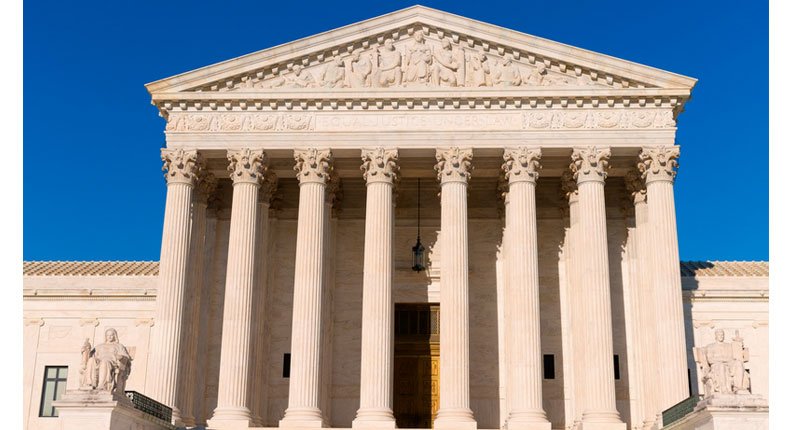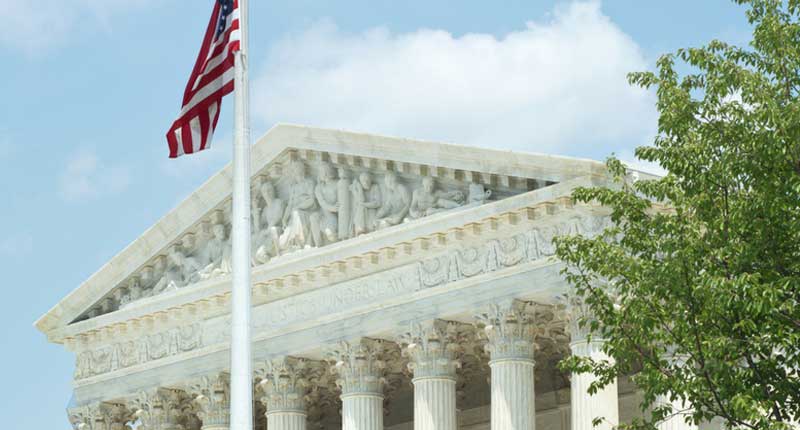

Do We Really Need a School Observation?
When I first started representing children with special education needs some eighteen years ago, the concept of sending in a consultant to observe a student during the school day seemed to be an absurd waste of time and money that would never provide any useful information. After all, I reasoned, if the teachers and school staff know that the student is being watched by an outsider, the observer will never be allowed to see what really happens during a regular school day. Boy, was I wrong. After reviewing hundreds of observation reports over the years, I can now attest that observations are a critical piece of our program evaluations and do, in fact, provide valuable information about a student’s school day in virtually every case. This is information that we could never hope to obtain from any other source. “Why do we need an observation?” “Isn’t just an evaluation sufficient?” Parents ask these questions on a regular basis because they share the same doubts that I once had. The answer is that observations provide us with a wealth of information about a student’s educational experience through the lens of an expert who is trained to interpret what happens in your child’s school environment. If you are concerned that your child is struggling socially, a good observer will be able to tell us whether he or she is connecting with peers during the school day. How does your child perform in a large classroom setting? An observer will tell us whether a child is able to thrive in a large group or whether he or she needs a more structured program, more individual attention or a smaller class size. Educational experts who conduct observations focus on such details as delivery of instruction, your child’s social interactions and your child’s peer group to help explain why your child may be having difficulties. Good observations are not limited to the classroom. Oftentimes, for a child who is struggling with anxiety or to make friends, the most important part of an observation may occur in the cafeteria or in gym class where the expert can see for herself whether your child is included and engaging with peers. Who should conduct the observation? Clearly, it should be a qualified professional who has experience in working with children who struggle in the areas of your concern. You, as a parent, cannot conduct an unbiased or trained observation of your own child. Frequently, a neuropsychologist or other specialist who has already evaluated your child is the best person to observe because they know your child’s strengths and weaknesses and best know what to watch for. If your child comes home from school, day after day, exhausted or anxious or discouraged, an observation may be what you need to understand your child’s school day, particularly when, as is often the case, your child is unable to adequately express his or her concerns in a manner that will get the school’s attention. An observation is an important resource not
Read More
CRA Petitions for Children with Disabilities – Are They Proper?
In an important opinion released on February 6, 2018, the Massachusetts Supreme Judicial Court (SJC) made clear that the truancy provisions of the Children Requiring Assistance (CRA) statute must not be applied to children whose failure to attend school is not willful but instead results from medical or mental health issues. For years, I have appeared in court alongside young people who have been summoned to juvenile court through school petitions for truancy when, in fact, their absences directly stemmed from their struggles connected with disabilities such as autism, anxiety, depression or mood disorders or, all too often, from relentless bullying that made them unable to enter the school building. On too many occasions, I have been forced to stand by while these children have been labelled as truants, chastised by school administrators and probation officers and threatened by judges with being removed from their parents’ homes if they did not return to school. In virtually all of these cases I have been struck by the unwillingness of all of these adults to recognize that these children genuinely want to go to school but, due to their disabilities, simply lack the ability to do so. Ordering these children to “just go to school,” without addressing the underlying reason for their inability to attend was doomed to failure and, more often than not, was utterly cruel and served only to exacerbate their anxiety and depression. In the case of Millis Public Schools v. M.P., the SJC was explicit that CRA truancy petitions are improper unless the child’s failure to attend school is purposeful. Importantly, the court made clear that “purposeful” conduct is only reflected by “behavior arising from reasons portending delinquent behavior.” In this case, the SJC found that while the student, a 15-year old girl, wanted to attend school, she was unable due to complications from a bladder condition compounded by autism and other cognitive and emotional disorders. In reversing the findings of a juvenile court judge that the child was truant, the SJC recognized that the child’s failure to attend school was not purposeful but, rather, was the product of her medical and associated mental and emotional impairments. The lesson from this case is that, unless a child’s absence is due to “playing hooky” or conduct beyond the parents’ control, CRA petitions are not an appropriate tool to try to compel a child to attend school. Instead, the SJC pointed out that, where a child with a disability is unable to attend school for reasons related to that disability, the proper venue is not juvenile court but, alternatively, is the Bureau of Special Education Appeals which is best equipped to ensure that the child’s needs are being met. Hopefully, this case will eliminate the all-too-common reaction of school administrators to refer school attendance issues to the juvenile courts which, unfortunately, are ill-equipped to provide services to children with complex medical, mental and emotional disabilities. If you have questions about CRAs or other juvenile court matters involving children with special
Read More
Sankey Law Wins Recent BSEA Hearing that Will Impact How Attendance Policies Are Applied to Students with Disabilities Under Section 504
Sankey Law Offices recently prevailed in a hearing at the Massachusetts Bureau of Special Education Appeals (BSEA) that will substantially impact the manner in which schools apply their attendance policies to students with disabilities. In Student v. Bay Path Regional Vocational Technical High School, Hearing Officer Rosa Figueroa found that Bay Path’s Attendance Policy, as applied to the student in this case, was discriminatory and violated his rights under Section 504 of the Rehabilitation Act of 1973. As a result, the hearing officer ordered Bay Path to modify its policy for this particular student. School Attendance Policies and Section 504 of the Rehabilitation Act of 1973 It is well established under Section 504 that a student with a disability is entitled to a reasonable modification of policies, practices, or procedures if such policies, practices and/or procedures discriminate against the student on the basis of his or her disability. Under state law, schools have the authority to create their own local attendance policies for students, but the policies cannot be discriminatory. If the policy is discriminatory, then the school must provide reasonable accommodations and/or modifications to the policy so that the student can have equal access to his or her education similar to the access provided to non-disabled peers. Application of Section 504 in Sankey Law’s Recent Case In this case, the student suffered from intense migraine headaches that frequently prevented him from attending school. The migraines were sporadic and unpredictable. Each time that the Student was absent due to a migraine, he provided a note from his doctor excusing his absence. However, under Bay Path’s Attendance Policy, once a student was absent for 10 full school days or 20 course periods in a school year, even if the absences were medically excused, the student could not earn graduation credits, despite completing all of the work for each course. As a result, the student would be retained the following school year. Bay Path applied this policy to the student knowing that his absences were medically excused and that they clearly resulted from his disability. Bay Path also required the student to attend Saturday School, which otherwise was primarily used as a punitive measure for truant students. In ruling that the school policy was discriminatory, the Hearing Officer wrote: In sum, I find that Student is an individual with a qualifying disability who is entitled to the protections of Section 504 of the Rehabilitation Act of 1973 and that Bay Path, a Federal funds recipient, discriminated against Student in failing to make reasonable modifications to its facially neutral Attendance Policy to accommodate Student’s known medically related disabilities. In doing so, Bay Path violated Section 504 and denied Student equal access to Bay Path’s general education program. The Hearing Officer issued several orders that Bay Path is obligated to implement, including ordering that the student’s medically excused absences due to migraines shall be deemed “exempt from the Attendance Policy” and not counted toward Bath Path’s maximum attendance limit. She also ordered that the
Read More
What Impairments are Considered ‘Disabilities’ for Special Education Purposes in Massachusetts?
Are you wondering whether your child has a disability that may qualify him or her for special education services? The Individuals with Disabilities Education Act (IDEA) – the federal law that governs special education services – specifies what impairments qualify as disabilities for special education purposes. The IDEA recognizes the following impairments as disabilities: Intellectual disabilities, Hearing impairments, including deafness, Speech or language impairments, Visual impairments, including blindness, Serious emotional disturbance, Orthopedic impairments, Autism, Traumatic brain injury, Other health impairments, or Specific learning disabilities. If your child has an impairment that fits within one of the above ten categories, and there are indications that your child may not be making effective progress in the general education setting due that impairment, your child may be eligible for special education and related services. See our article: Who Qualifies for Special Education Services? to learn about the referral and evaluation process. For more information, please contact us at 781-930-3127 Special Education Lawyer | Massachusetts | Boston For more information, please contact us at 781-930-3127. Notice: JavaScript is required for this content.
Read More
Sankey Law Wins Hearing that Will Impact Attendance Policies for Students with Disabilities
Sankey Law Offices recently prevailed in a hearing at the Massachusetts Bureau of Special Education Appeals (BSEA) that will substantially impact the manner in which schools apply their attendance policies to students with disabilities. In Student v. Bay Path Regional Vocational Technical High School, Hearing Officer Rosa Figueroa found that Bay Path’s Attendance Policy, as applied to the student in this case, was discriminatory and violated his rights under Section 504 of the Rehabilitation Act of 1973. As a result, the hearing officer ordered Bay Path to modify its policy for this particular student. School Attendance Policies and Section 504 of the Rehabilitation Act of 1973 It is well established under Section 504 that a student with a disability is entitled to a reasonable modification of policies, practices, or procedures if such policies, practices and/or procedures discriminate against the student on the basis of his or her disability. Under state law, schools have the authority to create their own local attendance policies for students, but the policies cannot be discriminatory. If the policy is discriminatory, then the school must provide reasonable accommodations and/or modifications to the policy so that the student can have equal access to his or her education similar to the access provided to non-disabled peers. Application of Section 504 in Sankey Law’s Recent Case In this case, the student suffered from intense migraine headaches that frequently prevented him from attending school. The migraines were sporadic and unpredictable. Each time that the Student was absent due to a migraine, he provided a note from his doctor excusing his absence. However, under Bay Path’s Attendance Policy, once a student was absent for 10 full school days or 20 course periods in a school year, even if the absences were medically excused, the student could not earn graduation credits, despite completing all of the work for each course. As a result, the student would be retained the following school year. Bay Path applied this policy to the student knowing that his absences were medically excused and that they clearly resulted from his disability. Bay Path also required the student to attend Saturday School, which otherwise was primarily used as a punitive measure for truant students. In ruling that the school policy was discriminatory, the Hearing Officer wrote: In sum, I find that Student is an individual with a qualifying disability who is entitled to the protections of Section 504 of the Rehabilitation Act of 1973 and that Bay Path, a Federal funds recipient, discriminated against Student in failing to make reasonable modifications to its facially neutral Attendance Policy to accommodate Student’s known medically related disabilities. In doing so, Bay Path violated Section 504 and denied Student equal access to Bay Path’s general education program. The Hearing Officer issued several orders that Bay Path is obligated to implement, including ordering that the student’s medically excused absences due to migraines shall be deemed “exempt from the Attendance Policy” and not counted toward Bath Path’s maximum attendance limit. She also ordered that the
Read More
Heightened FAPE Standard Announced by the Supreme Court
As the new school year begins, it’s important to keep in mind the new Free and Appropriate Public Education (FAPE) standard introduced by the United States Supreme Court earlier this year. On January 11, 2017, the Supreme Court heard oral arguments in Endrew F. v. Douglas County School District to decide the level of educational benefit a school must deliver to students with disabilities in order to meet the FAPE requirement of the Individuals with Disabilities Education Act (“IDEA”). By way of background – In 1982, the Supreme Court decided that the FAPE requirement compelled schools to provide services to students with disabilities that confer “some educational benefit.” The 10th Circuit, the relevant circuit in Endrew F., interpreted “some educational benefit” to mean “merely more than de minimis.” The family in Endrew F., however, argued that FAPE required schools to provide students with disabilities with a higher level of educational benefit – specifically, a “meaningful” educational benefit. The Endrew F. case involved a young boy with autism whose parents believed that he was not being provided FAPE by his Colorado school district. Because of this, the boy’s parents unilaterally placed him in a private educational setting and sought reimbursement from the school district. The administrative hearing officer, U.S. District Court for the District of Colorado, and 10th Circuit Court of Appeals applied the “merely more than de minimis” standard and determined that the boy had received enough of an educational benefit to meet the FAPE requirement, and ruled in favor of the school district. In reviewing the lower courts’ decisions, the Supreme Court issued a unanimous ruling on March 22, 2017. It vacated the 10th Circuit Court of Appeals’ decision and announced a higher standard of education for children with disabilities. The Supreme Court rejected the “merely more than de minimis” standard and adopted a standard that neither party had argued for, holding that schools must provide students with an education program that is “reasonably calculated to allow the child to make progress appropriate in light of the child’s circumstances.” Justice Roberts, who penned the court’s decision, noted that every child should be given an opportunity to meet challenging objectives and that “a student offered an educational program providing ‘merely more than de minimis’ progress from year to year can hardly be said to have been offered an education at all.” Many Special Education Advocates and parents have celebrated the Endrew F. outcome, hopeful that it will give way to improvements in special education programs for children with disabilities across the country. In Massachusetts, it has been our experience that hearing officers have always applied this higher standard so, in our opinion, this decision will not have much impact on BSEA cases. However, it is certainly a relief that the Supreme Court has supported a child’s right to a program intended to result in more than minimal progress. For more information, please contact us at 781-930-3127. Notice: JavaScript is required for this content.
Read More
Police Officer Conduct in School Settings Addressed By Supreme Judicial Court
On August 29, 2017, the Massachusetts Supreme Judicial Court announced a decision that required the court to balance an individual’s right to be free from unreasonable searches on school property against the public’s interest in maximizing safety in schools. In this case, school officials saw the defendant, who was not a student, on the grounds of a public school. The defendant entered the school, lied about his identity and his reason for being there, and ultimately returned to the school parking lot. School officials approached the defendant in the parking lot and, after smelling marijuana, brought him into a conference room inside the school and called the Milton Police Department. Importantly, when the reporting police officer arrived, school officials did not inform her of the defendant’s interactions with school officials or that he had lied in order to enter the school. Operating only on her knowledge that the vice-principal was “excited” and that the vice principal and principal were “rattled,” the police officer proceeded to conduct (1) a pat-frisk and search of the defendant’s person, during which she found marijuana and close to $3000 in cash, and (2) a pat-frisk and search of the defendant’s backpack, during which she found a bottle of alcohol, a bag of marijuana, a scale and a loaded handgun. The police officer then arrested the defendant. The defendant was later tried and convicted in Quincy District Court of various gun and drug charges. Because the police officer did not have information from school officials to suggest that the defendant was criminally trespassing on school grounds, or that the defendant was armed, the Court held that the pat-frisk and search of the defendants’ backpack was not justified. In a split decision, the Court ruled that when a police officer conducts a search in a school setting, his conduct is governed by traditional Fourth Amendment standards rather than the reduced standard applied to searches by school officials when acting to ensure student safety. This means that when a police officer is investigating a suspicious person on school grounds, the officer must have reasonable suspicion supported by articulable facts that the defendant committed a crime in order to conduct a “pat frisk” of the person. Furthermore, the police officer must have probable cause to conduct a search, along with a search warrant, unless an exception to the warrant requirement exists. As a result, the Court vacated the defendant’s gun and drug convictions on the premise that the evidence used against him at trial was illegally obtained and should be suppressed. Importantly, the Court emphasized that its decision clarifies only the manner in which police officers must conduct themselves on school grounds and in no way impacts the ability of school officials to respond to threats to student safety, stating “it is important to emphasize here that our ruling does not bear on what school officials themselves can and should do to ensure the safety of students.” This decision certainly presents a predicament for school administrators who are not
Read More
Supreme Court Hears Service Dog Case
Under the Individuals with Disabilities Education Act (“IDEA”), individuals claiming a violation of IDEA must exhaust administrative proceedings before bringing a case against a school district in federal court. But what happens if individuals bring a claim against a school district under other discrimination laws and do not raise an IDEA violation? May they proceed directly to federal court and bypass IDEA’s administrative requirements? On October 31, 2016, the United States Supreme Court heard arguments in Frye v. Napoleon Community Schools addressing this very question. In this case, a Michigan school district refused to allow a trained service dog to attend school to assist a student with cerebral palsy and impaired mobility. The student’s parents sued the school district in federal court under the Americans with Disabilities Act and the Rehabilitation Act for money damages. They did not claim an IDEA violation because they were not seeking educational relief. The school district argued that excluding a service animal from a student’s individual education plan was a violation of the student’s rights under IDEA and therefore the parents were required to exhaust the administrative process before filing in federal court. The student’s parents argued that because they are seeking money damages rather than educational relief for the emotional harm their daughter suffered by not having her dog attend school with her, they were not required to exhaust administrative proceedings under IDEA before filing in federal court. We are often faced with this type of issue when we represent students who seek damages for injuries that they suffer in school. We are hopeful that the Supreme Court will recognize the futility of requiring parents to proceed before the Bureau of Special Education Appeals when the Bureau does not have the power to award damages. A decision can be expected in 2017. For more information, please contact us at 781-930-3127. Notice: JavaScript is required for this content.
Read More
What Are Related Services for Special Education?
The Individuals with Disabilities Education Act (IDEA) is the federal law that governs special education. Children who are eligible to receive special education services are eligible to receive both (1) special education and (2) related services. IDEA defines related services as “transportation, and such developmental, corrective, and other supportive services . . . as may be required to assist a child with a disability to benefit from special education . . . .” Examples include, but are not limited to: speech-language pathology services, audiology services, interpreting services, psychological services, physical and occupational therapy, recreation, social work services, school nurse services, counseling services, orientation and mobility services, and medical services for diagnostic or evaluation purposes The IEP team determines what related services the child needs and includes them in the IEP. The team must specify in the IEP when the service will begin, where it will be provided, and how often and for how long the service will be provided. See What is An IEP Team and Who Are its Members for more information regarding IEP teams. For more information, please contact us at 781-930-3127. Notice: JavaScript is required for this content.
Read More
United States Supreme Court to Consider Whether to Adopt a Heightened FAPE Standard
For the first time since 1982, the United States Supreme Court will consider what level of educational benefit a school must deliver to a student receiving special education services in order to meet the Free and Appropriate Public Education (“FAPE”) requirement of the Individuals with Disabilities Act (“IDEA”). Currently, circuits are split on what level of educational benefit a school must deliver in order to provide FAPE. The Tenth Circuit, among others, merely requires schools to provide “some educational benefit”. On the other hand, the First Circuit (which includes Massachusetts) and others require schools to provide a heightened educational benefit – one that is “meaningful.” “Meaningful” is otherwise understood as “more than . . . trivial.” The case being heard by the Supreme Court is Endrew F. v. Douglas County School District, RE-1. In this case, the parents believed that their son with autism was not being provided FAPE by their local school district in Colorado. Due to their concerns, they unilaterally placed him in a private school and sought reimbursement from their local school district. The hearing officer, U.S. district court, and 10th Circuit Court of Appeals found in the school district’s favor, concluding that the student was being provided FAPE because he was receiving “some educational benefit.” The Obama administration, after being asked to weigh in by the Supreme Court, urged the Supreme Court to adopt the “meaningful benefit” standard, which now applies in Massachusetts. The Supreme Court’s decision will likely impact students receiving special education services in Massachusetts and throughout the country. We remain hopeful that the Court will recognize the importance of providing “meaningful” benefits to students requiring special education services. For more information, please contact us at 781-930-3127 Special Education Lawyer | Massachusetts | Boston For more information, please contact us at 781-930-3127. Notice: JavaScript is required for this content.
Read More

